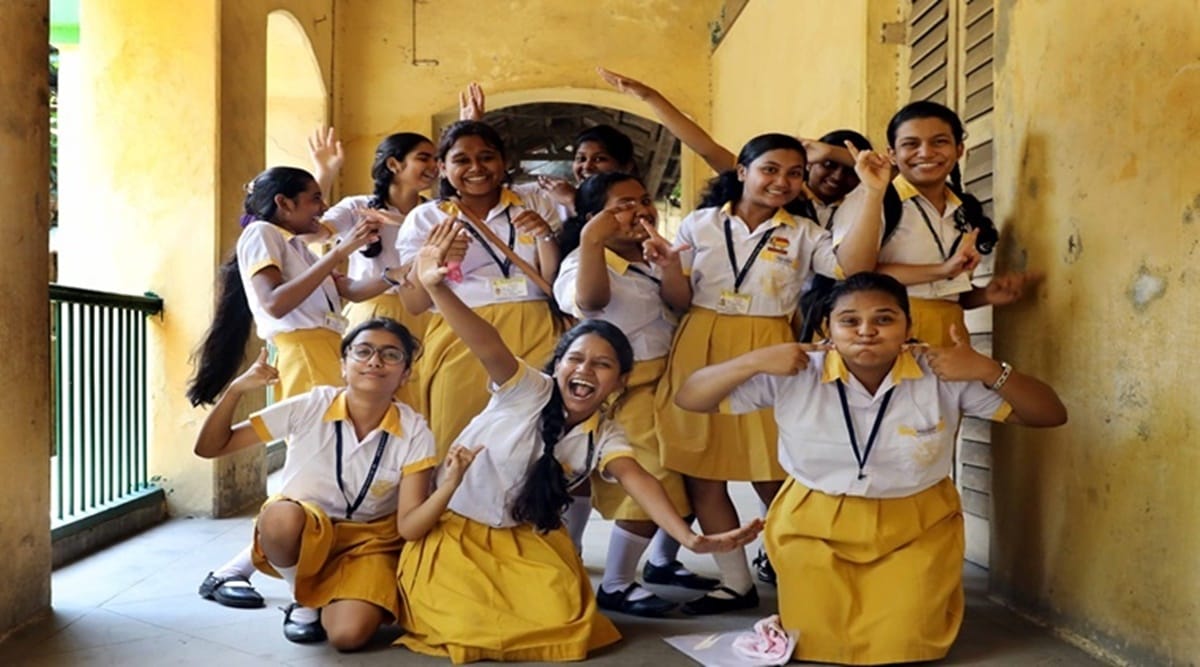 TBSE announced its results following a provisional grading formula considering previous performances of class 9 and 10 for Madhyamik examination and that of class 11 and 12 for Higher Secondary results. (Representational image)
TBSE announced its results following a provisional grading formula considering previous performances of class 9 and 10 for Madhyamik examination and that of class 11 and 12 for Higher Secondary results. (Representational image) Two weeks after it declared Madhyamik and Higher Secondary results through a provisional grading formula, the Tripura Board of Secondary Education (TBSE) today announced to pass all candidates who appeared in even one or two papers at different stages, considering “few discrepancies” found in the marking system and student protests against the result.
The move came after the state education department announced a review of the results in the face of widespread student protests. Nearly 99 per cent candidates who registered themselves for the board exam this year have passed as per this decision.
While TBSE cancelled its Madhyamik (matriculation) and Higher Secondary examinations due to ongoing COVID-19 pandemic this year, the board announced its results following a provisional grading formula considering previous performances of class 9 and 10 for Madhyamik examination and that of class 11 and 12 for Higher Secondary results.
Speaking to reporters here today, TBSE president Dr Bhabatosh Saha said, “We found some discrepancies after the results were announced. Students protested in a few places saying they got less marks. We requested teachers from all eight districts to recheck their evaluated marks. During this period, a few discrepancies were found,” Saha said. He added that the state government took a sympathetic approach towards all students during the pandemic and almost all students were passed with minimum marks.
Asked why the decision was taken, Dr Saha said the government has taken this popular decision for this year only, considering results of other education boards, few student movements in the state.
“The board provided marksheets for students who qualified in the results this year. For those who didn’t, the board has reviewed the results. We tallied records from schools with our records and barring those who didn’t appear in their exams, candidates who might have written one or two papers in different stages were passed. Their marksheets would be provided tomorrow,” the board chief said.
Apart from this, many students were absent in the Higher Secondary practical examinations. Their practical exams would be re-conducted between September 1 and 10. The board has reiterated that anyone dissatisfied with their results would have to apply for separate examination within August 23; their exams would be conducted in September. The state education board would be conducting board result improvement examinations and equivalence examinations for ITI graduates, who can write their English papers and obtain a senior secondary equivalent certificate.
On a separate issue, the TBSE has decided to conduct next year’s board exams in two phases in similar lines with CBSE. The first exam would be conducted in November-December while the second phase would be conducted in March-April. These exams would be conducted based on 30 percent reduced syllabus like this year. However, the decision would be subject to prevailing COVID pandemic situation.
On August 1, (TBSE) announced its class 12 or Higher Secondary results with 95.20 percent average pass rate, 14.4 percent higher than last year’s pass rate.
This includes 98.65 percent pass rate in Arts stream, 96.22percent in Commerce stream and 98.28 percent pass rate in Science stream. This is a growth from 78.56 percent in Arts stream 79.52 percent in commerce and 89.85 percent in Science stream last year. Among Madrasa candidates, 87.50 percent candidates passed in Arts stream and 88.24 percent in theosophy streams.
The Madhyamik results announced on July 31 had 80.62 percent average pass rate, 11.13 percent higher than previous year’s matriculation pass rate.
In the face of scattered incidents of students’ protest occured across the state since the results were announced, Education Minister Ratan Lal Nath said on August 5 that he has directed the state education board to review the results and find out if any discrepancy is there. He claimed the review would make a permanent solution for any issues with the board results.
- The Indian Express website has been rated GREEN for its credibility and trustworthiness by Newsguard, a global service that rates news sources for their journalistic standards.

